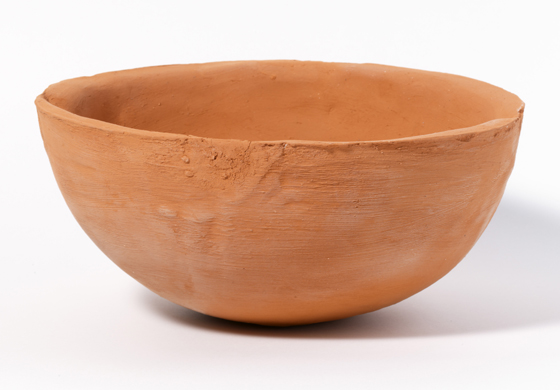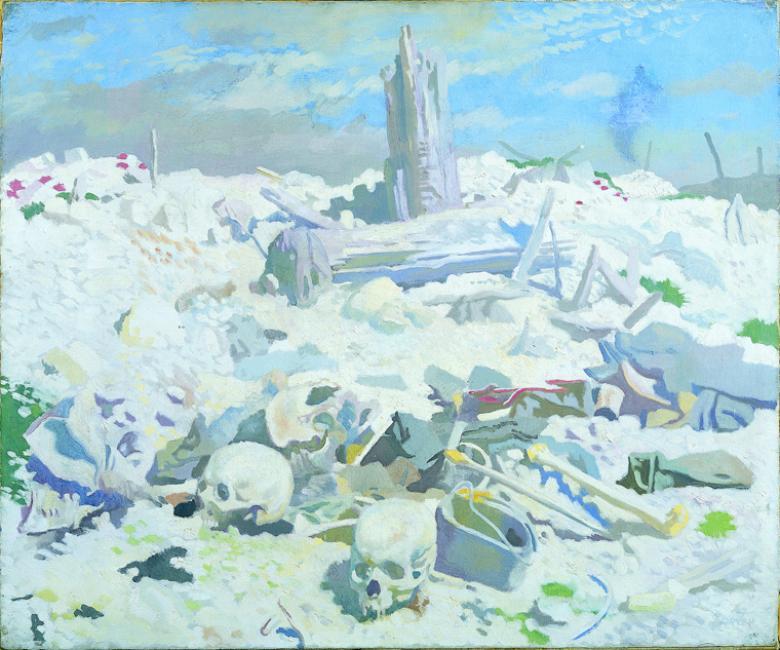

Credit
Press release 7/11/2017
Aftermath: The War Landscapes of William Orpen
11 November 2017 – 11 February 2018
Admission free
In 1917, the Dublin born artist William Orpen (1871-1931) went to France as an official war artist. He visited the Somme, where he witnessed the aftermath of one of the war’s most terrible battles. By then deserted, the battlefield was a lifeless wasteland, the result of a prolonged campaign of trench warfare, mining, and heavy bombardment. Compelled to record what he saw, Orpen’s images show a mutilated earth, reshaped by the mechanics of modern warfare and populated by human remains.
Orpen was greatly affected by the experience and in his 1921 memoir ‘An Onlooker in France’ he evoked the terror of the landscape, articulating the permanent impression it left on him. He wrote, ‘I shall never forget my first sight of the Somme battle-fields … there was this endless waste of mud, holes and water … horrible and terrible, but with a noble dignity of its own’. Drawing on Orpen’s text, this exhibition explores a selection of his war landscapes as expressions of the profound human trauma of the war and his own personal struggle to comprehend the destruction it wrought.
Aftermath: The War Landscapes of William Orpen is formed around a series of nine oil paintings on loan from the collection of the Imperial War Museum in London. These are displayed alongside a first edition of Orpen’s publication ‘An Onlooker in France’, as well as letters to his wife Grace Orpen and his companion Evelyn St George.
Contemporary art element: The exhibition features new artwork by contemporary artist Garrett Phelan, who was invited by the National Gallery of Ireland to respond to William Orpen’s experience of the Somme while serving as an official war artist. Phelan has created two discrete works, one in sound and the other in clay. Both are informed by Phelan’s personal response to visiting the battlefield in 2017, and journeying in the footsteps of Orpen exactly 100 years on.
The exhibition is curated by Donal Maguire (ESB Centre for the Study of Irish Art) and opens in the National Gallery of Ireland from 11 November 2017 to 11 February 2018. Admission is free. An accompanying illustrated brochure is available, and a study morning takes place on Saturday 11 November.

Garrett Phelan (b.1965), 'LANDSCAPE – The La Boisselle Bowl', 2017 © Garrett Phelan
Notes:
- Donal Maguire is Administrator of the ESB Centre for the Study of Irish Art, National Gallery of Ireland, and Curator of the Orpen exhibition.
- Garrett Phelan (b.1965) has developed a distinctive practice through ambitious, site-specific projects that include drawing, independent FM radio broadcasts, sculptural installations, photography, animation and text ephemera. Recent solo exhibitions and commissions include THE HIDE PROJECT, commission, Fingal County Council, Dublin (2017); HEED FM, commission, Arts Council of Ireland, Dublin (2016); A VOODOO FREE PHENOMENOM, Project Arts Centre, Dublin (2015); NEW FAITH LOVE SONG, Irish Museum of Modern Art, Dublin (2012), and group exhibitions at EVA International, Limerick (2014); Palais des Beaus-Arts de Bruxelles (2013); AIR de Lyon, Buenos Aires (2012); Institute of Contemporary Arts, London (2012); and the 11th Biennale de Lyon (2011).
- Other related WWI exhibitions in the Gallery include Käthe Kollwitz: Life, Death and War (until 10 December 2017).
Remembrance Concerts:
There will be two concerts in the Gallery’s Shaw Room marking Remembrance Weekend.
On Saturday 11 November at 3.30pm, A Broken Tree will feature artists celebrating the life and work of the Slane poet Francis Ledwidge, killed at Ypres on 31 July 1917.The composer Michael Holohan will bring together in one concert the ‘classical music settings’ of Ledwidge’s poetry. Tickets €15/10, available here.
On Sunday 12 November at 3.30pm, Kaleidoscope will perform a Remembrance Weekend concert in the Shaw Room. Tickets for the concert €15/10, available here.
Study Morning:
The Aftermath of War, Saturday 11 November 10am - 1.30pm. Tickets €15/€10 from the Gallery Shop or here.
Connecting two of the Gallery's current exhibitions commemorating World War I - Aftermath: The War Landscapes of William Orpen and Käthe Kollwitz: Life, Death and War - this study morning will bring together writers, artists and academics to examine the role of the artist and visual culture in times of conflict, while also considering the experience of combatants and civilians caught up in the midst. Speakers include:
Ronan McGreevy, The Irish Times, journalist and author
Donal Maguire, National Gallery of Ireland, ESB Centre for the Study of Irish Art
Jennifer Wellington, Department of History, University College Dublin
Ann Murray, author and art historian, University College Cork
Declan Long, National College of Art and Design
Biography:
William Orpen (1878-1931)
Born in Dublin, William Orpen, portraitist, subject painter and official war artist, was one of the foremost artists of his generation. Although based primarily in London, Orpen retained strong links with his home country where he had an immense and lasting impact on the development of art and art education in the early twentieth Century. Orpen went to France in 1917 as an official war artist, serving with the British Army. Over the course of a year, he captured various aspects of military life behind the front lines while also focusing on the landscape in the aftermath of battle. After the war he gifted his entire collection of war art to the Imperial War museum. He died in 1931, at the age of fifty-three.
